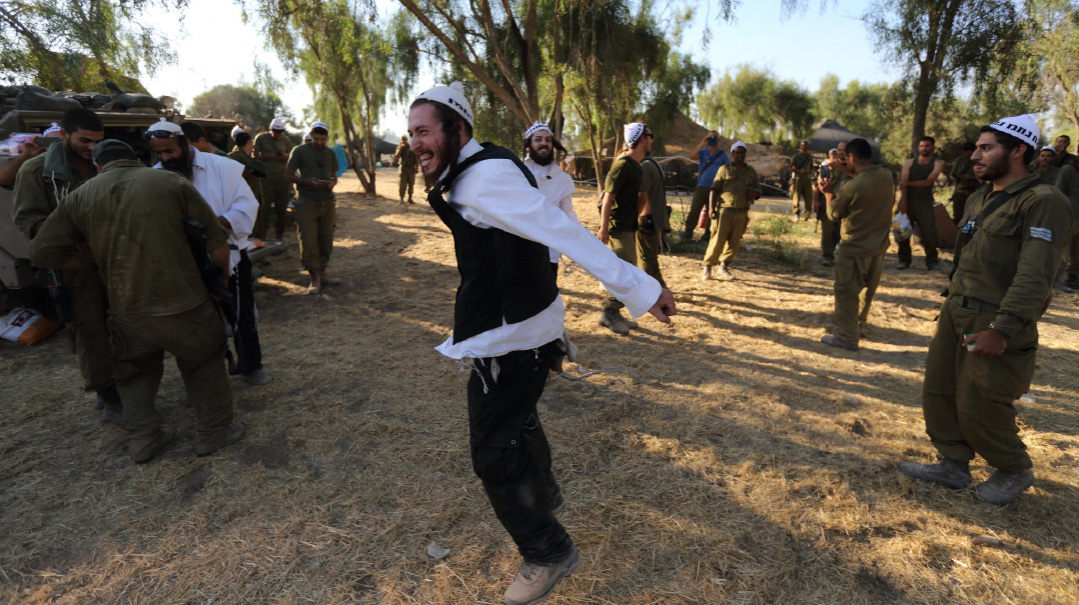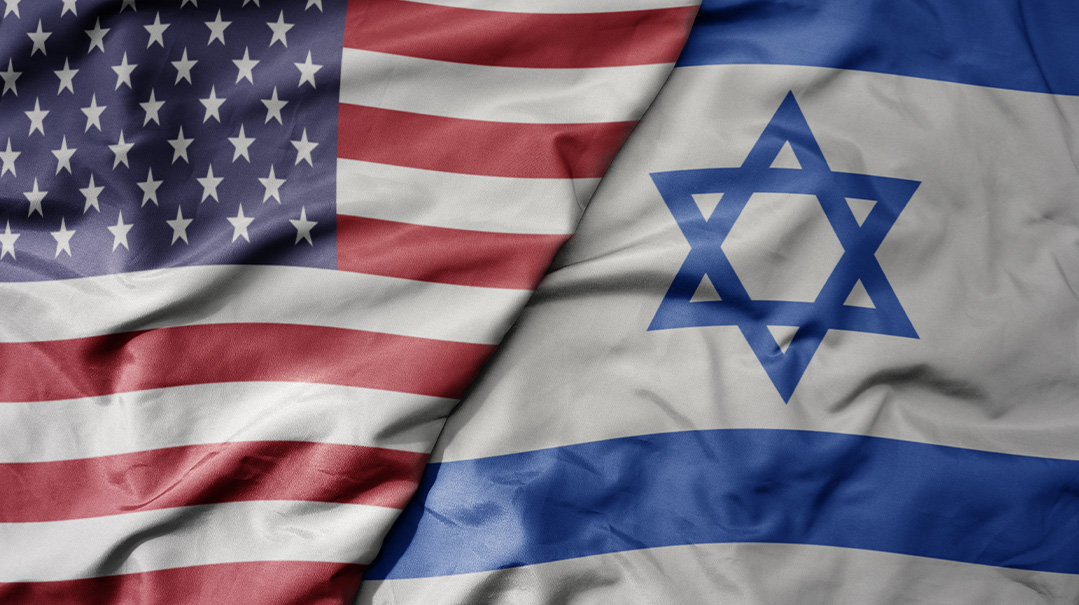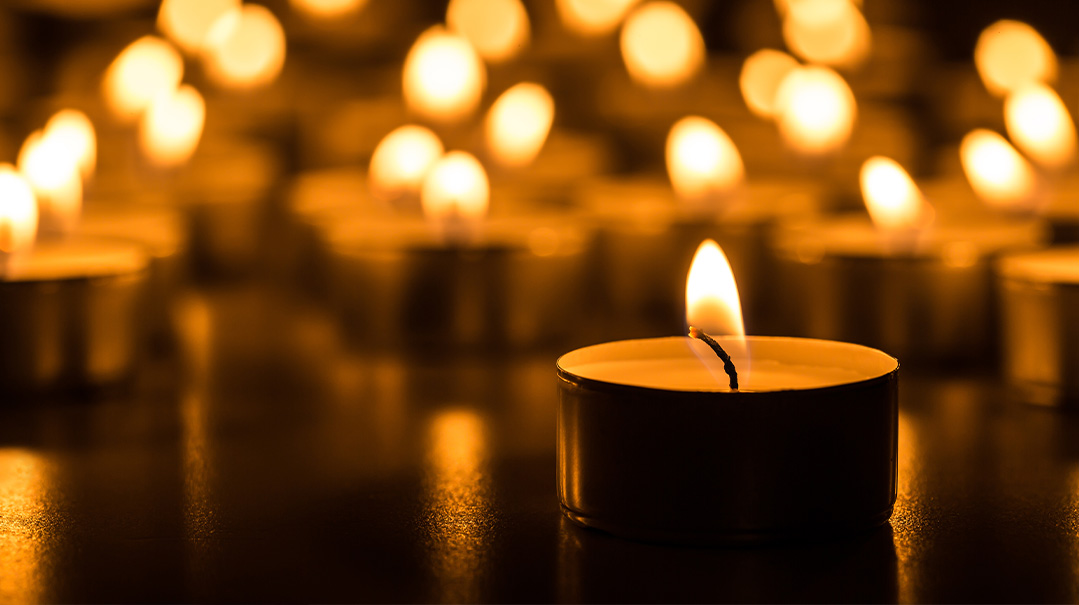Use the Algorithm

Joining the natural affinity of Torah and the Jewish soul
T
he traditional chareidi stance toward secular Israeli society had always been one of extreme insularity. That was a natural response of a small community to a frequently hostile outside society. In the heady, early days of the state, traffic from religion was all one way: “Ein bayis sh’ein bo meis” described the situation even in Meah Shearim.
But efforts to keep building ghetto walls can no longer be sustained for two reasons. The first is regrettable. Modern technology renders all boundaries permeable. The second is positive: We are no longer a small, beleaguered community. Over a fifth of Israeli schoolchildren are now in chareidi educational institutions.
Machon Haredi, founded by Mishpacha publisher Eli Paley, is one manifestation of this newfound chareidi confidence and a desire for a seat at the Israeli table. Paley describes the goal of the Machon as developing public policies that serve both the chareidi population and Israeli society generally.
As Noam Efron documents in his new book Real Jews: Secular vs. Ultra-Orthodox and the Struggle for Jewish Identity in Israel, secular Israeli society has lost the swagger of its early days and is no longer so sure of the wisdom of jettisoning all connection to Jewish tradition. Indeed, there is great curiosity among the youth about both chareidim and our shared heritage — of which the phenomenal popularity of the program Shtisel is but one manifestation.
The secular Israeli Scouts recently invited the Be a Mensch organization, which seeks to build connections between religious and nonreligious Israelis, to develop programs “shaping the identity” of all 80,000 Scouts, kids who will “grow up to be leaders in Israeli society and influence the entire Jewish people.” That invitation follows years of meetings between Be a Mensch and Scouts leaders that have given birth to “thrilling friendships and connections,” which have “endured over many years,” according to the Scouts program director.
Twenty secular pre-army induction academies (mechinot), with over one thousand members, have sought to join this coming year the mechinah program of Kesher Yehudi, which features monthly chavrusa learning of Torah texts, along with Shabbos visits to the homes of the chareidi chavrusas.
Chareidi organizations like Kesher Yehudi and Be a Mensch have deftly discovered an algorithm for developing relationships between these chareidi families and secular Jewish youth. The message is: “I care about you because you are part of my family, as a fellow Jew. I want us to know and understand one another.”
To foster that feeling of familial connection — a connection that exists despite differences — Be a Mensch shows a 14-minute film at the first meeting with every secular youth group made by the completely secular grandson of Rav Yosef Shalom Elyashiv’s first cousin. The film includes his grandmother’s reminiscences about her famous cousin and family photos of their common ancestor, the Leshem. In the film, Maj.-Gen. Eliezer Shkedy, former head of the Israeli Air Force, asks, “Who are the chareidim? My Saba and Savta and yours.” Oslo architect Yossi Beilin surprises by asserting that “my Jewish identity precedes my Israeli identity. I can’t say I don’t want my children to marry non-Jews because I’m a liberal. But I don’t want my children to intermarry.”
As that feeling of historical connection develops further through interpersonal relationships, it inevitably leads to certain questions: What joins us? What is our common history? What is the glue that always held Jews together? What is the power behind our miraculous survival as a People?
Neither Kesher Yehudi nor Be a Mensch define themselves as kiruv organizations or gauge their success on immediate commitments to religious observance. Rather their goal is developing personal connections.
If each secular participant completes the Kesher Yehudi mechinah program, for instance, having forged an ongoing personal relationship with his or her chavrusa, with a deeper understanding of why chareidim live as they do, and with a feeling that the Torah is his precious possession as well — dayeinu.
By eschewing the message, “I know Torah and you are ignorant,” members of these organizations have been able to form personal connections with secular Israelis, not to mention finding willing partners for Torah learning.
The advice to break down stereotypes of chareidim surprisingly comes from Rav Elazar Shach ztz”l, the leader of the yeshivah world for decades. In his maiden speech in the Knesset, the late Rabbi Avraham Ravitz began, “There is something to which I am very much opposed.” The rest of the speech focused on his strenuous opposition to that thing, without mentioning what it was. Only at the very end did he reveal the subject of his indignation — religious coercion. One could feel the collective shock throughout the Knesset plenum.
Afterwards, someone asked Rabbi Ravitz where he got the idea. He replied: “From Rav Shach.” Rav Shach had taught him that as a chareidi representative he should always seek to surprise and breakdown stereotypes. In that context, Rav Shach mentioned the stereotype that chareidim look down on secular Jews from their superior perch. (How many know that Rav Shach’s grandson compiled a nearly 400-page book, Shuvu Eilai, of his grandfather’s thoughts on kiruv?)
At the 2013 social protests against high food prices, when a young avreich named Yehuda Shine (who later affiliated with Be a Mensch) unfurled a large banner that read “Chareidim and chilonim refuse to hate one another,” he both refuted the claim that chareidim have no interest in the plight of their fellow Jews and immediately attracted a huge social media following.
When a young chareidi mother, a Kesher Yehudi volunteer carrying a days-old infant, boards a bus to learn with her secular chavrusa, she conveys powerfully how much she cares about her newfound study partner. For some of these secular youth, any chareidi person showing them attention comes as a shock.
The relationships formed between these chareidi volunteers and thousands of secular youth are a thorough refutation of the statement of sociologist Samuel Heilman (recently quoted by my colleague Eytan Kobre): “I suspect that the closer people are to real chareidim, the less they are charmed by them.” Aderaba. The letters to Be a Mensch refer to the beginning of “beautiful friendships,” meetings that have “enriched our world and our hearts.” Both secular and religious chavrusas in Kesher Yehudi describe one another as a “breath of fresh air,” and “someone whom I cannot imagine my life without today.”
Indeed, in the context of deep personal relationships, previous views on some of the main issues dividing chareidim and secular Jews in Israel change. Maj. Gilad Olshtein, the director of three mechinot, who initially proposed to Mrs. Tzila Schneider of Kesher Yehudi the idea of the mechinah program, says explicitly that his goal is for mechinah participants to learn to take pride in those who learn Torah in yeshivah or kollel.
Nor is that goal far-fetched. A member of the far-left HaShomer Hatzair kibbutz movement wrote to Be a Mensch after a series of meetings. “It was amazing and intriguing, I began to sympathize with a number of the many things I disliked before the meetings.” He added that ridding himself of his negative perceptions of chareidim made him “so happy.” Two groups of IDF soldiers expressed the need for all soldiers to participate in similar groups, which in the words of one “changed the way I look at chareidi men.”
Not only do perceptions of chareidim change, but so do the secular participants’ relationship to their own history and to Torah itself. Mrs. Schneider relates with amusement how she once approached a chavrusa in one of the mechinah programs, together with a large donor, to ask them to say a few words about the program. The mechinah member told her bluntly, “I have this once-a-month opportunity to learn Torah. Your question is bittul Torah.”
Zalman Bernstein, the great Jewish philanthropist who himself became a baal teshuvah, once commissioned a major study to determine the factors that best predict a Jew coming back to Torah observance. The study’s conclusion: The single best predictor is a close relationship with a Torah Jew.
Creating those friendships is precisely what those imbued with Hirschian optimism about the power of Torah to sell itself and the natural affinity of Torah and the Jewish soul are doing all over Israel today.
Originally featured in Mishpacha, Issue 769. Yonoson Rosenblum may be contacted directly at rosenblum@mishpacha.com
Oops! We could not locate your form.






